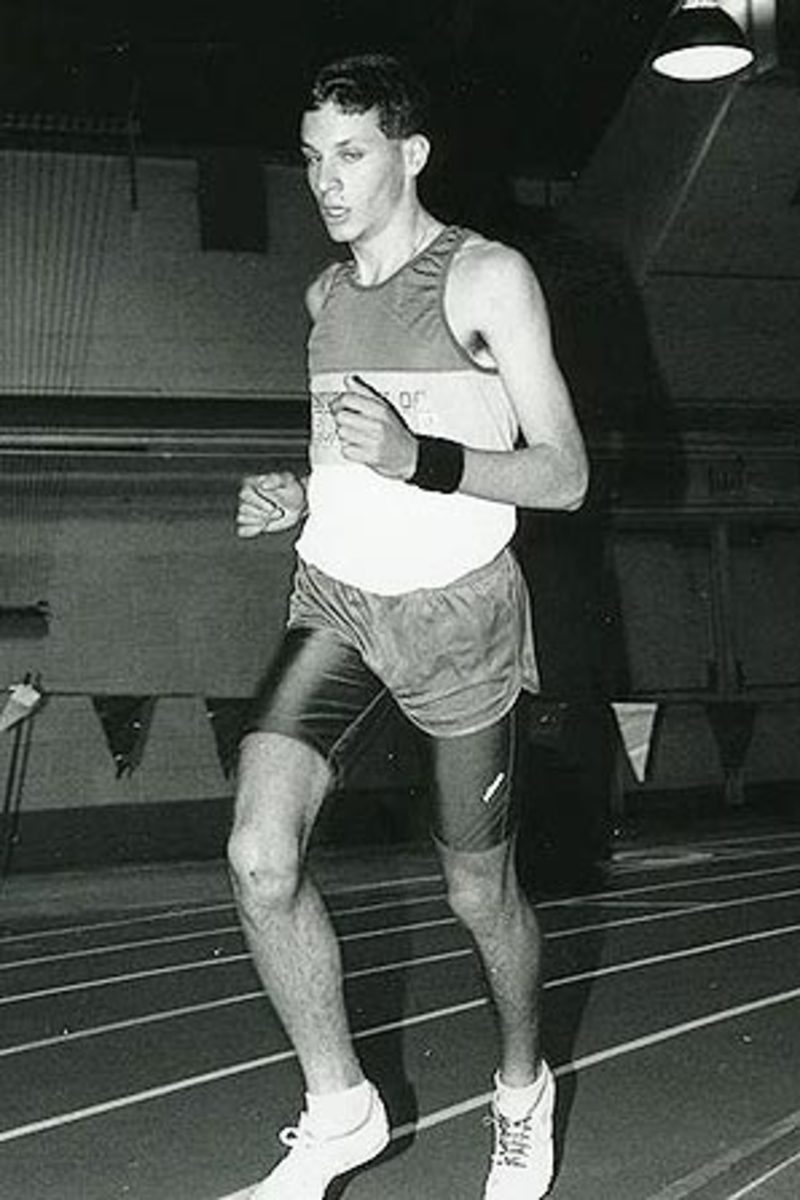Delaware cuts their cross-country program, loses a beloved coach
The University of Delaware's football team recently wrapped up its season with 103 players on its roster. That includes four quarterbacks, 10 running backs, 14 wide receivers, 16 defensive backs and four kickers. As a proud graduate of the school, this makes me immensely happy. It was, after all, Winston Churchill who once said, "Life without a 16th defensive back is no life at all."
Or, ahem, maybe that was Tubby Raymond.
Either way, I digress.
Wednesday morning the news came out that Delaware, land of Joe Biden and, eh, ah, other stuff, is scrapping its men's cross country and track and field programs. The reasons presented by Bernard Muir, the school's athletic director, were extremely reasonable -- especially if you're the type of person who thinks 13 running backs just isn't enough. Citing "exercising fiscal responsibility and remaining in compliance with Title IX," Muir said that the cross-country program, what with its $20,000 budget and 12 roster spots (featuring zero scholarships), was damning the university to a place in eternal gender hell. In an explanation on its website as to why the two programs had to be killed, the university cited Title IX a whopping 12 times -- as in, "Because of Title IX, we must squash you."
With Churchill no longer available to address the Blue Hen mess, I will liberally borrow from one of his most lasting quotations -- "A lie gets halfway around the world before the truth has a chance to get its pants on." Not that Muir or other members of the Delaware athletic department are lying, per se. But when university officials (and this applies to most universities -- not merely Delaware) moan about the negative impact of Title IX, they generally wipe away fake tears with one hand while subtly nudging the football program behind a curtain with the other. Look, over there! A two-headed emu!
As opposed to schools like Texas, Ohio State and Georgia, where gridiron revenues serve to fund most of the athletic department, the Fightin' Blue Hens -- recent runners-up in the Division Formerly Known as Division I-AA -- are a giant money suck. The program didn't report profits when I was a student at the school in the early-to-mid 1990s, it didn't make money in the 2000s and it doesn't make money now.
Do people care about Delaware football? Well, uh ... I guess so. Spend enough time in the First State and you're destined to hear folks talk glowingly of Rich Gannon and Keita Malloy and Joe Flacco.
Behind the blather and fan-board loudmouths, however, is an ambivalent reality. Playing at home against Georgia Southern in last month's I-AA semifinals, Delaware drew 10,317 fans to a stadium that holds 22,000. One week earlier, in the quarterfinals against New Hampshire (a conference rival), that total was 8,770.
Really, 8,770.
Not that football should lack a place at Delaware. Without Coach K.C. Keeler's program, where would all those poor, deprived Division I transfers spend their final seasons? Without Coach K.C. Keeler's program, who would even know West Chester University has a team? Without Coach K.C. Keeler's program, what would the university's athletic department do with those 103 coveted spots?
Hmm ...
Again, I digress.
Back in the fall of 1990, I was a gangly 18-year-old from Mahopac, N.Y., with a 4:59 mile headlining my sub-adequate high school running resume. I had written letters to dozens of Division I track and cross-country programs, begging for a chance to walk on and prove myself.
The only person to respond was Jim Fischer, the Blue Hens' coach and, it turns out, one of the greatest human beings I would ever meet.
Fisch, as most people call him, was likely uninspired by my background and times. If so, he never said a word.
"We'd love to have you," he told me. "If you're willing to work, there'll be a spot for you."
I was, at best, one of the 50-worst Division I runners in 1990-91. But I was willing to work. And listen. And learn. As other freshmen spent their free time sneaking into the Deer Park Tavern or lounging out on the grass in front of Russell Hall, I was dashing through the trails of Newark, Del., desperately trying to keep pace with Eric Albright and Travis Adams and Bryan Denbrock. I was ridiculously outclassed -- a mediocre prep runner longing to hang with the East Coast elite -- but never deterred.
Everything Fisch stressed was about self-improvement and digging deep and finding meaning in each run. He was a fan of winning, but a significantly bigger fan of evolution. When I sprinted the final 100 yards of a race at Princeton, avoiding last place by mere inches, I smiled as I crossed the finish line. Fisch, never one to berate, pulled me aside.
"All of that energy," he said, "and you saved it for the end?"
Coach is now in his 29th year at Delaware, and when we spoke Wednesday I felt as if I were making a shiva call. Over the past year he has battled prostate cancer, shingles and kidney stones. This, however, is the lowest of lows.
Fisch -- being Fisch -- refused to blast the university he loves or the administrators who stole his programs. He spoke of all the calls he's received -- from former team members; from rival coaches.
"It hurts, I can't lie," he said. "But this is about the runners, not me."
Somewhere on the University of Delaware campus, an anonymous fourth kicker is counting his blessings.
Somewhere on the University of Delaware campus, a beloved coach is counting his program's days.
Jeff Pearlman can be reached at anngold22@gmail.com. Also check out his blog at jeffpearlman.com.






